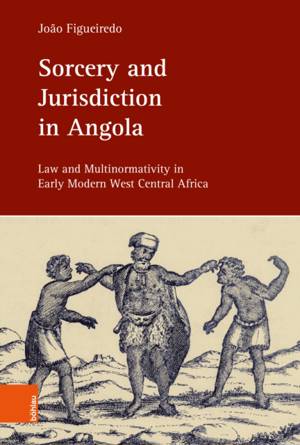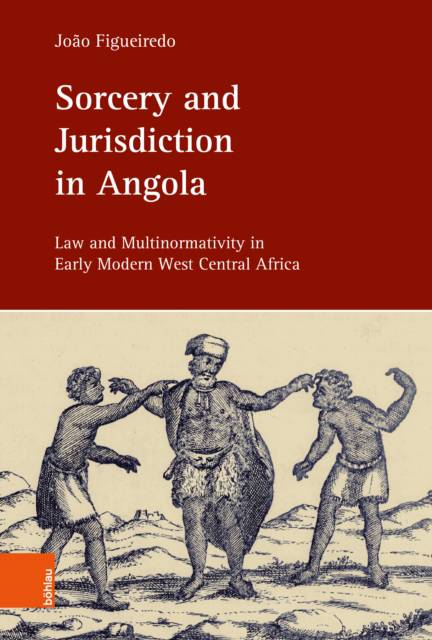
- Afhalen na 1 uur in een winkel met voorraad
- Gratis thuislevering in België vanaf € 30
- Ruim aanbod met 7 miljoen producten
- Afhalen na 1 uur in een winkel met voorraad
- Gratis thuislevering in België vanaf € 30
- Ruim aanbod met 7 miljoen producten
Zoeken
Sorcery and Jurisdiction in Angola
Law and Multinormativity in Early Modern West Central Africa
Joao Figueiredo
€ 93,95
+ 187 punten
Omschrijving
When the Portuguese arrived at the mouth of the Zaire River in 1483, two vibrant normative regimes came into contact. The European traders, missionaries, and soldiers who followed the first explorers brought a jurisdictional system of government that accepted local uses and customs as biding and a theological understanding of natural law with universalist claims. They encountered complex African societies based on various normative systems, emphasizing arbitration and mediation between corporate groups and protection against evils attributed to preternatural forms of personal agency - what the Portuguese framed as feiticaria or sorcery. Joao Figueiredo focuses on the intense cross-cultural translation of normative knowledge in West Central Africa following this initial encounter. He argues it was afforded by an evolving, shared understanding of sorcery and constant renegotiation of the limits and meanings of jurisdiction, the law, and the institutions of slavery.
Specificaties
Betrokkenen
- Auteur(s):
- Uitgeverij:
Inhoud
- Aantal bladzijden:
- 566
- Taal:
- Engels
- Reeks:
- Reeksnummer:
- nr. 3
Eigenschappen
- Productcode (EAN):
- 9783412533137
- Verschijningsdatum:
- 11/08/2025
- Uitvoering:
- Hardcover
- Formaat:
- Genaaid
- Afmetingen:
- 155 mm x 231 mm
- Gewicht:
- 99 g

Alleen bij Standaard Boekhandel
+ 187 punten op je klantenkaart van Standaard Boekhandel
Beoordelingen
We publiceren alleen reviews die voldoen aan de voorwaarden voor reviews. Bekijk onze voorwaarden voor reviews.







